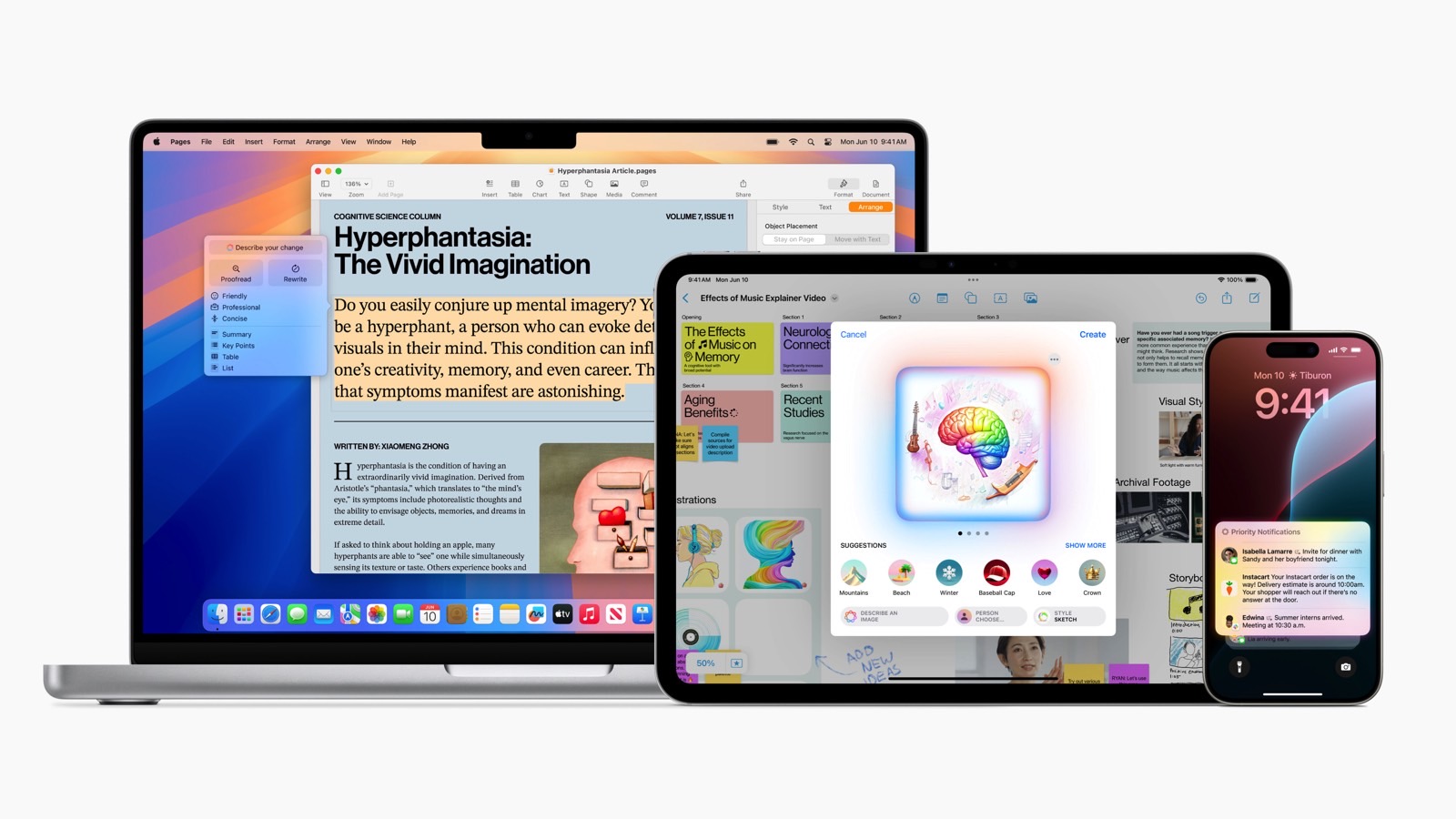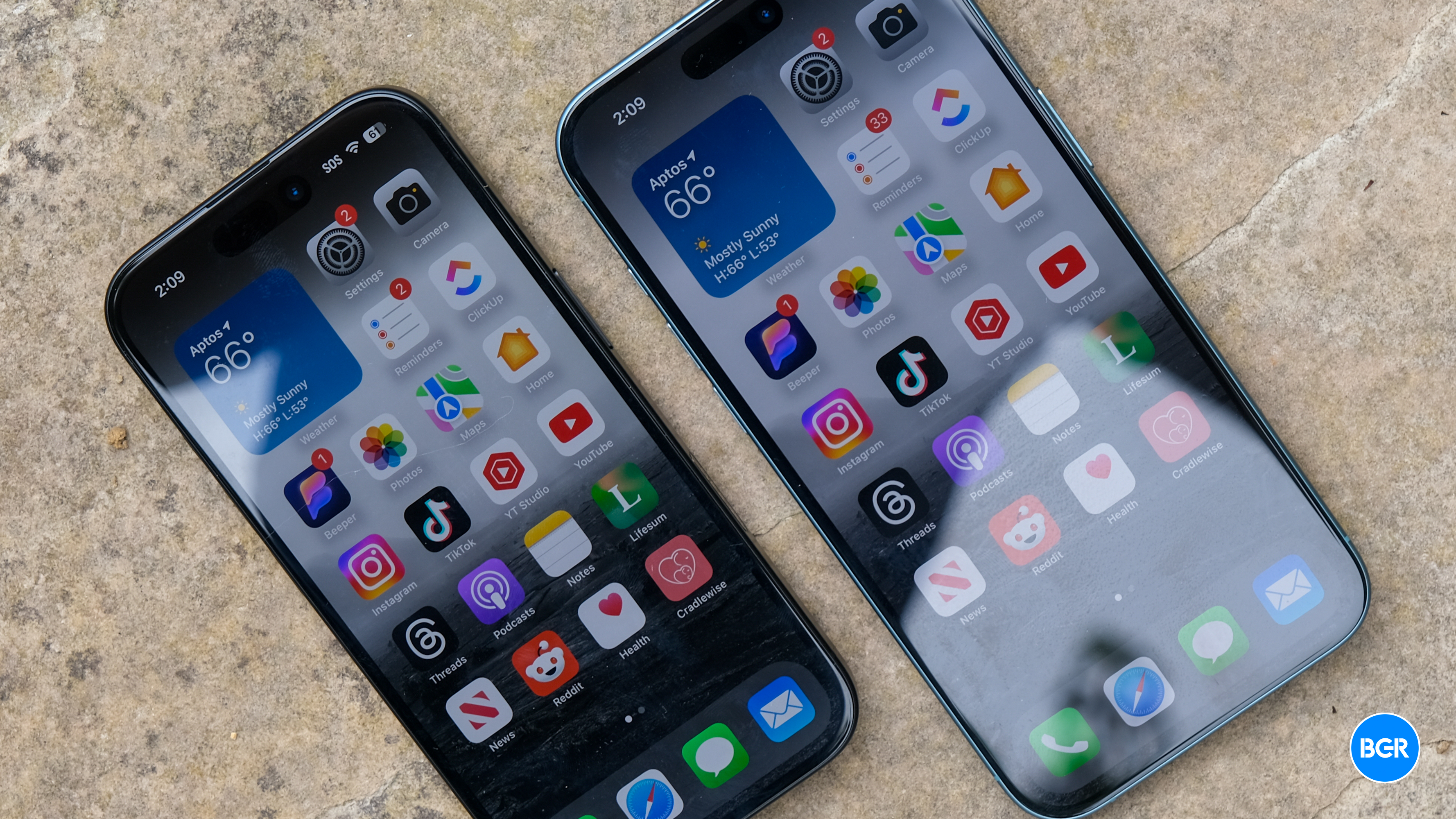I’m now on my third day of owning an iPhone 16, but I still haven’t even taken it out of the box.
As I said previously, I went with the iPhone 16 Plus this year. I had plenty of reasons to upgrade from my iPhone 14 Pro. Apple Intelligence, the Camera Control button, the larger screen, and the better battery life are among the top upgrades. But with Apple Intelligence largely unavailable, I found little reason to get excited about setting up the iPhone 16 Plus. Once I’m done restoring all my data and setting it up, there won’t be any surprises waiting for me, or even any exciting new features. I’ve already been running iOS 18 on my iPhone 14 Pro, and I’m plenty familiar with the experience and the painful lack of AI.
I’m also aware that iOS 18.1 will not bring the entire suite of Apple Intelligence features Apple has demoed at WWDC. It’ll be a staggered rollout, as Apple is so far behind the competition that it needs more time to finish building all the AI features it promised. And forget about the smarter Siri because that won’t be available until sometime next year.
But when iOS 18.1 is finally released, it won’t do anything for me. I’m a European iPhone 16 owner. That means I can’t get Apple Intelligence when the US and other international markets receive it. And, following Apple’s most recent move, I’m worried I’ll have to wait even longer than I was expecting.
I’ve known all along that Apple Intelligence will take longer to launch in the EU. That was clear to me right after WWDC, yet I installed the iOS 18 beta nonetheless. The new software release packs plenty of non-AI features I welcome.
However, I thought Apple might not take too long to bring Apple Intelligence to Europe. Other genAI products took slightly longer to roll out in the EU, but ChatGPT and Gemini are now available here. Apple’s comments over the summer and the recently expanded language support for Apple Intelligence made me even more hopeful that I’ll start experiencing Apple’s AI on my iPhone soon enough.

Fast-forward to this week, Apple made headlines because it decided not to sign the EU’s new AI Pact. Apple isn’t alone, with Meta and Anthropic unwilling to sign the EU initiative. Mistral, a genAI company based in France, did not sign the Pact either. However, many Big Tech companies from the US were among the signatories, including Adobe, Amazon, Google, Microsoft, and OpenAI.
According to a press release from the European Commission, over 100 companies signed the AI Pact. However, that impressive figure does not hide the fact that several big names, especially Apple, are absent from the list.
The Pact covers voluntary, non-binding commitments for these companies to apply the principles of the AI Act before it officially goes into effect. The AI Act is EU legislation that will take effect at some point in the coming months.
The AI Act is probably the reason why ChatGPT’s Advanced Voice Mode hasn’t rolled out to European users.
What is the AI Pact?
The EU wants tech companies to develop safe AI, and the region is leading the way when it comes to AI regulation. While I think AI needs regulation worldwide and the EU’s swiftness should be applauded, I’ll remind you the EU has been pretty busy regulating Big Tech. Its other initiatives against Big Tech might explain the current resistance to the AI Pact.
I also think the EU has been too busy policing the tech sector with other laws rather than innovating. The Digital Markets Act (DMA), which forces sideloading on the iPhone and mandates chat interoperability for some of Meta’s apps, is a good example. I want none of that on my iPhone (or Android phone). I want genAI and personal AI assistants, however.
It’s unclear why Apple wasn’t ready to sign the AI Pact. Apple made no comments on the matter. If there’s one company I’d trust with safe, private, and highly personal AI, that’s Apple. It’s why I’m willing to wait for Apple Intelligence as long as it takes.
But this move might signal there are many lingering issues between Apple and the EU for AI development and deployment. Or it might just be a complex chess game that involves the EU’s other quarrels with Apple, including DMA compliance.

Even without signing the AI Pact, Apple will have to comply with the AI Act to bring Apple Intelligence to the EU. Maybe Apple doesn’t want to be forced to comply with the AI Act before it’s fully rolled out. That’s what the AI Pact would amount to. Here’s the schedule for the AI Act, according to the European Commission:
The AI Act entered into force on August 1, 2024. Some provisions of the AI Act are already fully applicable. The entire AI Act will be fully applicable 2 years following its entry into force, with some exceptions: prohibitions will take effect after six months, the governance rules and the obligations for general-purpose AI models become applicable after 12 months and the rules for AI systems embedded into regulated products will apply after 36 months.
But Apple’s decision makes me less optimistic about the rollout of Apple Intelligence in Europe. We might be in for a much longer wait than I would have expected. The only upside is that Apple Intelligence might be more mature by the time it comes to Europe.
It’s even stranger to see Apple and Meta on the same side of the matter. Meta, at least, said it might sign the AI Pact at a later stage. “We also shouldn’t lose sight of AI’s huge potential to foster European innovation and enable competition or else the EU will miss out on this once-in-a-generation opportunity,” a spokesperson told Politico.
I’ll also point out that the AI Pact was the work of outgoing European Commissioner Thierry Breton. Resistance to the AI Pact might have something to do with that, but it’s all speculation. Still, while over 100 companies inked the AI Pact, the EU said previously that over a thousand companies were interested in it.
Maybe Apple, Meta, and others are waiting for the new Commission to settle before they agree to new regulation. Meanwhile, I’ll soon set up the iPhone 16 Plus and use it as a boring old non-AI phone.








